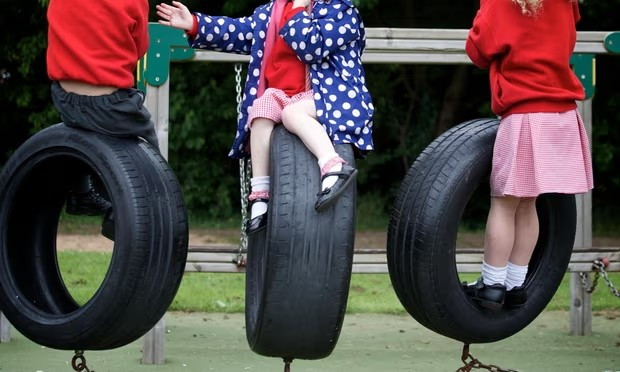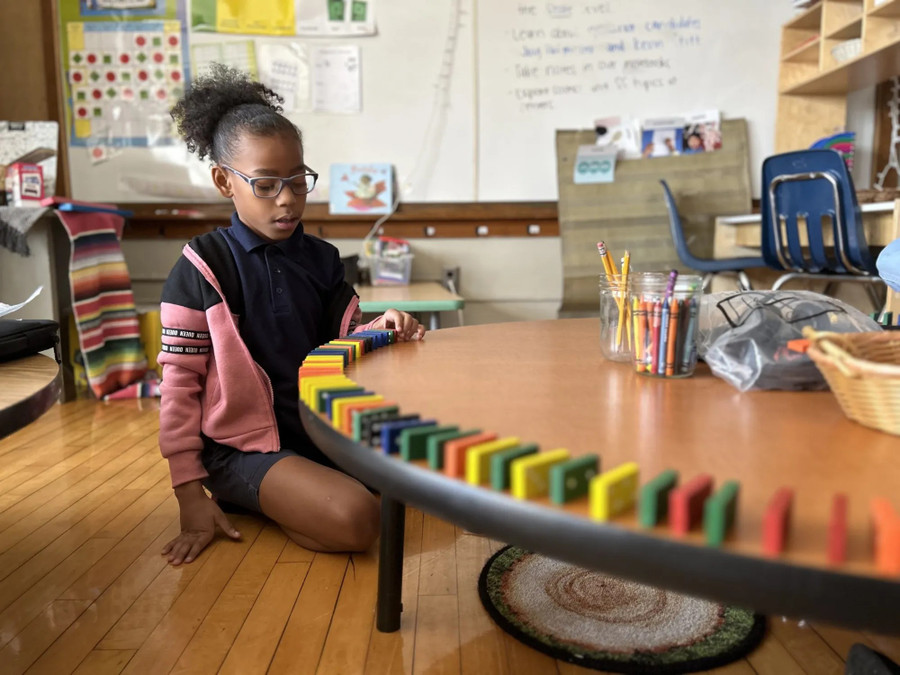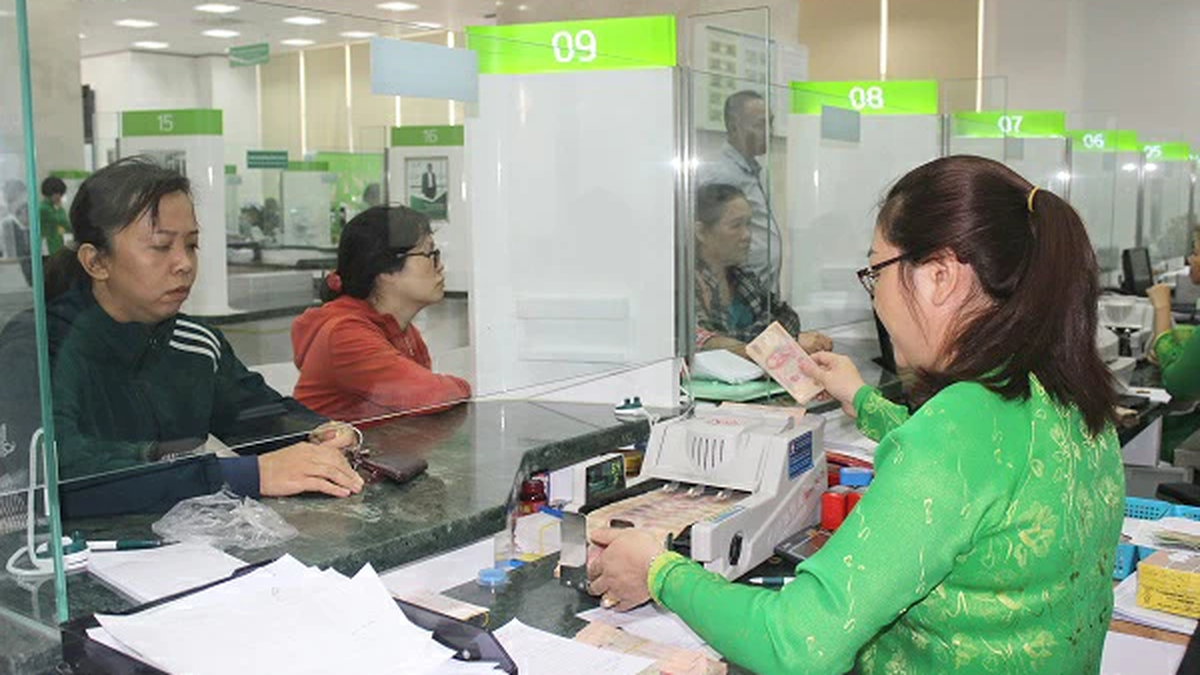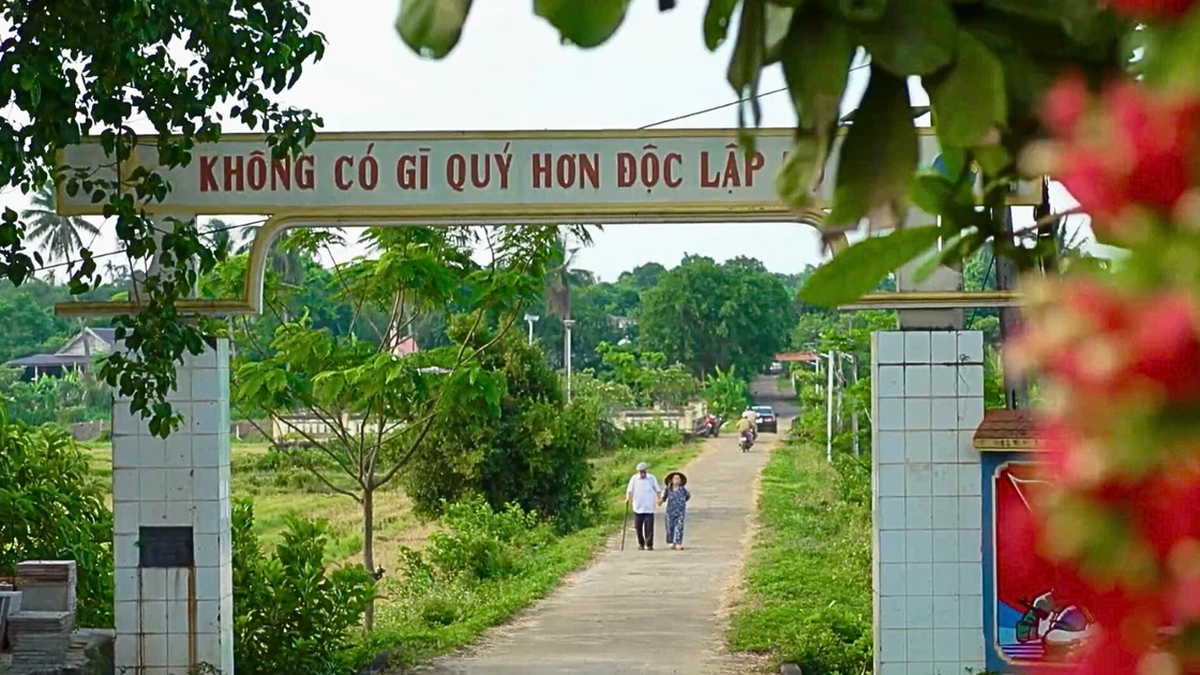Replace ineffective operations
Visiting a second-year class at Oxford Primary School in the UK, school principal Tina Farr clearly noticed a change in the atmosphere since the game was introduced into the curriculum.
“I feel a lot of energy. The kids are excited about what they’re doing. There’s always a ‘shop’ going on in the classroom so they’re pricing something or looking for change. They’re always working together,” said Principal Tina Farr.
It may not seem strange that 6- and 7-year-olds are still “busy” in their imaginary world . But in reality, in most elementary schools, that’s not how children this age approach knowledge. According to experts, play-based learning allows children to move around, interact with friends, and create activities.
Children will also be able to explore through teacher-led activities. Typically, this method of education is only applied to children in kindergarten. For older children, knowledge is usually transmitted through lectures, where children need to concentrate at a desk, focusing on reading and writing.
The headteacher of Oxford Primary School has always championed the value of play in the curriculum. Initially, she introduced play into children’s break times, through a program called Opal. But then teachers suggested incorporating play-based learning into lessons, and Headteacher Tina Farr realised she had the freedom to decide how to implement the national curriculum.
“The Department for Education guidance says we are free to structure our school day in any way we like,” says Tina Farr, adding that teachers will recognise what children do as learning, even if it is done through play.
For example, teachers can explain money and math to children using PowerPoint. They will then move on to a game based on the topic of the lesson. This method requires less planning than the standard approach.
Initially, the play-based learning approach was applied to primary school children in grades 1 and 2 at Oxford Primary School. Then, Principal Tina Farr looked into applying this teaching method to other grade levels.
She believes that this teaching method can replace other ineffective educational activities. There are many things that can be done within our current system. If an activity is not suitable for the healthy development of children, then why do we do it?
The school’s Year 5 children (aged 9 and 10) struggled to sit still in a cramped room, so Tina Farr ordered the furniture cleared out of the classroom. “Children are reluctant to move around in crowded classrooms, so we removed all the desks and chairs and decided to let them sit, lie down or stand wherever they wanted. It was a free experiment, almost free,” said Oxford Primary School headteacher.
Tina Farr then provided high chairs and tables for the children. “The benefits were immediate, especially for sensitive learners. Children were given the freedom to choose where and how they studied. They could move around without asking permission when necessary. A class that had struggled with attention was now calm, focused and engaged,” says the head of Oxford Primary.
“I like the flexible seating, not having to sit at a desk but being able to sit anywhere to study,” said one of the fifth-graders at the school. “The swivel chair makes less noise and I can choose who I sit with during the school day. It makes me comfortable and productive.”
Meanwhile, a teacher at the school shared: “The students’ self-regulation has improved a lot. They are much calmer and can have their own space if they want. So I have more opportunities to see how seriously they participate in the lesson.”
In June 2025, Oxford Primary School passed its inspection by the Office for Standards in Education, Children’s Services and Skills (Ofsted). “The inspectors really understood our play-based learning. They didn’t ask any questions and wrote a fantastic report about the school,” said Ms Farr.

Solving the health crisis
Researchers have previously called for play to be introduced into schools to tackle the “growing crisis” in children’s physical and mental health. The proposal would see teachers teaching play-based learning at all ages, not just the early years.
Poor health in children can be tackled by focusing on play in all aspects of life, especially at school, said Michael Follett, director of Opal Play, an organisation working to improve playtime in schools.
“There is a current and growing crisis. Many children are unhealthy, increasingly suffering from mental health problems at a scale we have never seen before.
Even if school is the only game a child ever experiences, it can make a significant difference in their lives. For some students, it is literally the only game they play,” said Follett.
Opal helps primary schools in the UK improve playtime by providing training on different types of play. It also focuses on getting children to play with a range of materials including waste equipment such as tyres, rope and sand, as well as dressing up.

In fact, one of the biggest challenges facing schools in the UK is the pressure to cut down on playtime in the curriculum. A 2019 report from the Institute of Education at University College London found that recess time in British schools has fallen over the past two decades, with older pupils losing an hour more recess each week than before.
Therefore, Mr. Follett emphasized the importance of incorporating play into the curriculum. “Schools focus on children’s numeracy and literacy. But why not prioritize play? Good play leads to better social skills in children. At the same time, it makes children happier and healthier. At least in school, children have a period of time called playtime,” said Mr. Follett.
In 2023, Labour MP Kim Leadbeater launched a report calling for a broader understanding of happiness to keep people healthy. The report also called for better protection for children’s right to play in all aspects of their lives.
It also recommends that the government spend more on playgrounds at local authority level. The report also recommends that play be included as a protected element in the Equality Act 2010. The report consulted psychologists, campaigners, developers and architects on children's play spaces.
The 'outdated' education system needs to change immediately. The world has changed. We have neuroscience to know that children learn through play. Other educational institutions can adopt this approach too.
I was really amazed at the level of engagement the children had. It was incredible. Don't call our school progressive or eccentric. We are delivering education according to the national curriculum, but through play. Mrs TINA FARR, Headteacher of Oxford Primary School
Source: https://giaoducthoidai.vn/dua-tro-choi-vao-lop-hoc-o-anh-giup-tre-hanh-phuc-hon-post741282.html



































































































Comment (0)